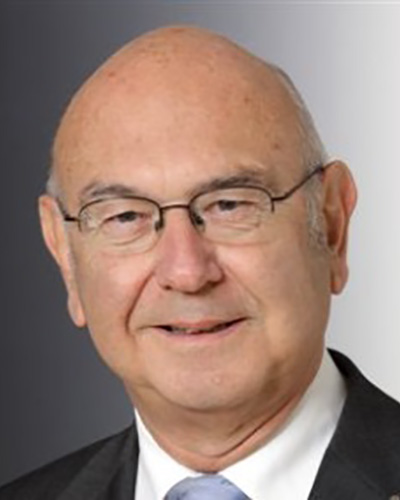
The theme of the session has been changed from Regulators and Climate Change to: The BioEconomy: People, Planet, Policies. Could you elaborate on why the change was made?
Focusing on “regulatory aspects and on climate change”: this is a fascinating combination and interesting as well, but too narrow to properly cover present and future trends, challenges and the potential replies the bioeconomy might offer. The new title corresponds more to the enormous complexities, the unbroken dynamism with which the biobased economies develop worldwide, and this more looking at the new issues we face in a potential post-COVID world. These new issues range from health and biomedicine to the question: What kind of value or supply chains shall be left global and which ones will be “repatriated”; regionally or even locally: and a stronger, smarter use of biological resources in the middle!
The Roundtable, to be held on 4th February, will focus on “Biostrategies Overview”, where you will be the moderator. Are there any particular issues you are focusing on?
I would like to concentrate on two issues:
1) What is at present happening in various parts of the world, in regions and on different continents? We will carry out a kind of comparative stocktaking, also taking into account the results of the 3rd Global Bioeconomy Summit in Berlin.
2) What can we note or highlight now, one year after the beginning of the pandemic? We will discuss how the notion of the biobased economies might change – in their priorities, settings and in their implementation. And will the pandemic actually represent a chance for the development of the bioeconomy?
The World BioEconomy Forum 2021 is planned to take place in Brazil later this year. What are your expectations for the event?
Firstly, I very much hope – and this is my strongest expectation – that this meeting is held in person, and at least hybrid. Online conferences and events have become necessary but they are not ideal for events such as these. Secondly, I hope to learn more about the situation and the perspectives of the bioeconomy in this part of the world, which is abundant in biomass and living resources, including hotspots of biodiversity in a dimension hardly to be found elsewhere. Amazonia on its own deserves to be the principal topic of such a conference, and the fact that only in the last six months we have Costa Rica, Colombia and Ecuador presenting their own new bioeconomy strategies and Uruguay preparing its own. This is the best entrée for holding such a forum in this part of the world!
The Bioeconomy: People, Planet, Policies Roundtable Panel will be composed of the following speakers: Carolina Balian, Advisor in Natural Resource Economics and Climate Change in the Office of Agricultural Planning and Policy of the Ministry of Livestock, Agriculture and Fisheries (MGAP) of Uruguay; Dr. Mary Maxon, Associate Laboratory Director for Biosciences at Lawrence Berkeley National Laboratory, USA; Monica Rauh, Head of Division, Industrial Affairs, Chemical, Textile, Woodworking and Paper Industry, Bioeconomy, Bavarian Ministry of Economic Affairs, Regional Development and Energy, Germany; and Dr. Fang Chen, Director of Information Research Department and Executive Director of Center for Strategic Studies on Bioscience and Biotechnology (CaSBIO), China. Additionally, the event will be hosted by Jukka Kantola, Founder of World BioEconomy Forum, and Mark Rushton, Co-Founder of World BioEconomy Forum.
Five Minutes With… is a series of interviews being run by the WCBEF to highlight some of the high-level speakers and panellists taking part in the Roundtables and Forum happening this year. To register for the upcoming Roundtable click here.